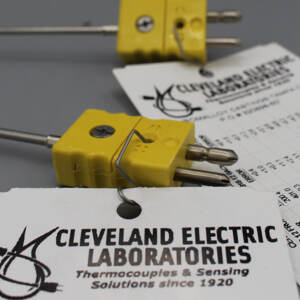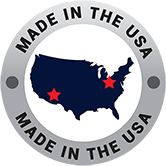Platinum Thermocouples: Essential Guide for High-Temperature Applications
Introduction to Platinum Thermocouples
A platinum thermocouple is a high-precision temperature sensor engineered for applications that require accurate and stable measurement at extremely high temperatures. Made from premium thermocouple wire platinum and platinum-rhodium alloys, it delivers exceptional reliability and long-term stability, making it ideal for environments where precise temperature control is essential. Platinum thermocouples are often integrated with transmitters, controllers, and display units to create complete temperature monitoring systems. With a wide measurement range from 0°C to 1800°C, they are widely used in industries such as metallurgy, ceramics, aerospace, and other fields that demand consistent and dependable temperature performance.
Advantages of Platinum Thermocouples
Platinum thermocouples offer several advantages that make them a preferred choice for high-temperature applications. One of the primary benefits is their exceptional accuracy and stability. Unlike other types of thermocouples, platinum variants maintain their precision over a wide temperature range, from 0°C up to 1800°C, ensuring reliable performance in critical processes. This stability makes them suitable for environments requiring long-term temperature monitoring without frequent recalibration.

Additionally, platinum thermocouples boast a high resistance to oxidation and corrosion, which allows them to function effectively in oxidizing and inert atmospheres. This durability extends their service life and reduces the need for frequent replacements. They also exhibit excellent thermal and chemical stability, which is crucial for consistent performance in high-temperature industrial environments such as furnaces, reactors, and kilns.
These thermocouples also offer the advantage of compatibility with various temperature measurement and control systems, enhancing their versatility. Their use in process control ensures that industries can maintain optimal operational conditions, thereby improving efficiency and safety.
Advanced Thermocouple Technology
Platinum thermocouples also include innovations like multipoint thermocouples, which are designed to measure temperatures at multiple points along a single probe. These sensors are ideal for industrial applications such as furnaces, reactors, and pipelines where monitoring temperature gradients is essential for process control and efficiency. Multipoint thermocouples reduce the need for multiple individual sensors, streamlining system configurations and enhancing reliability.
Limitations of Platinum Thermocouples
While platinum thermocouples provide numerous advantages, they also come with certain limitations. One of the main drawbacks is their sensitivity to contamination and pollution. Platinum is a precious metal, and its performance can be compromised if exposed to certain elements or impurities, particularly in reducing environments. This sensitivity means that platinum thermocouples must be carefully protected and maintained to ensure accurate readings.
Another limitation is the high cost associated with platinum materials. As a precious metal, platinum is expensive, which increases the overall cost of the thermocouple. This makes it a significant investment, especially for applications requiring multiple sensors or frequent replacements. Additionally, the thermoelectric sensitivity of platinum thermocouples is lower compared to other types, meaning they may not be as responsive in detecting smaller temperature changes.
Understanding these limitations helps industries make informed decisions when selecting platinum thermocouples, ensuring they are used in suitable environments and applications to maximize their benefits.
Applications of Platinum Thermocouples
Platinum thermocouples are widely used across various industries where precise high-temperature measurement is essential. In the metallurgy sector, they play a crucial role in monitoring temperatures during metal processing, smelting, and refining operations, ensuring that materials reach the optimal temperature for forming and treating without compromising quality. Similarly, in the ceramics industry, these thermocouples are employed in kilns to maintain consistent temperatures, which is vital for producing high-quality ceramic products.
In aerospace and manufacturing, platinum thermocouples are integrated into systems that require accurate monitoring of extreme temperatures, such as in turbine engines and reactors. Their high resistance to oxidation and ability to operate in inert atmospheres make them ideal for these demanding environments. Additionally, they are utilized in laboratories and research facilities where controlled, precise temperature measurements are necessary for experiments and testing processes.
By providing accurate and reliable temperature readings, platinum thermocouples ensure that industrial processes maintain efficiency, safety, and product quality across these varied applications.
How to Choose the Right Platinum Thermocouple
Selecting the appropriate platinum thermocouple depends on the specific temperature range and environmental conditions of the application. For temperatures ranging from 1000°C to 1300°C, a single platinum-rhodium thermocouple (platinum-rhodium 10) is often recommended due to its stability and cost-effectiveness within this range. However, for higher temperatures, typically between 1200°C and 1600°C, a double platinum-rhodium thermocouple (platinum-rhodium 30/platinum-rhodium 6) is more suitable, as it provides enhanced durability and longevity under extreme conditions.
It’s essential to consider the atmosphere in which the thermocouple will be used. Platinum thermocouples perform best in oxidizing and inert environments but may be less effective in reducing atmospheres or when exposed to metal vapors. Proper insulation and protective measures should also be implemented to prevent contamination and maintain the accuracy of temperature readings.
Consulting with experts, like those at Cleveland Electric Labs, can help in choosing the right thermocouple configuration for specific industrial needs, ensuring optimal performance and longevity.



